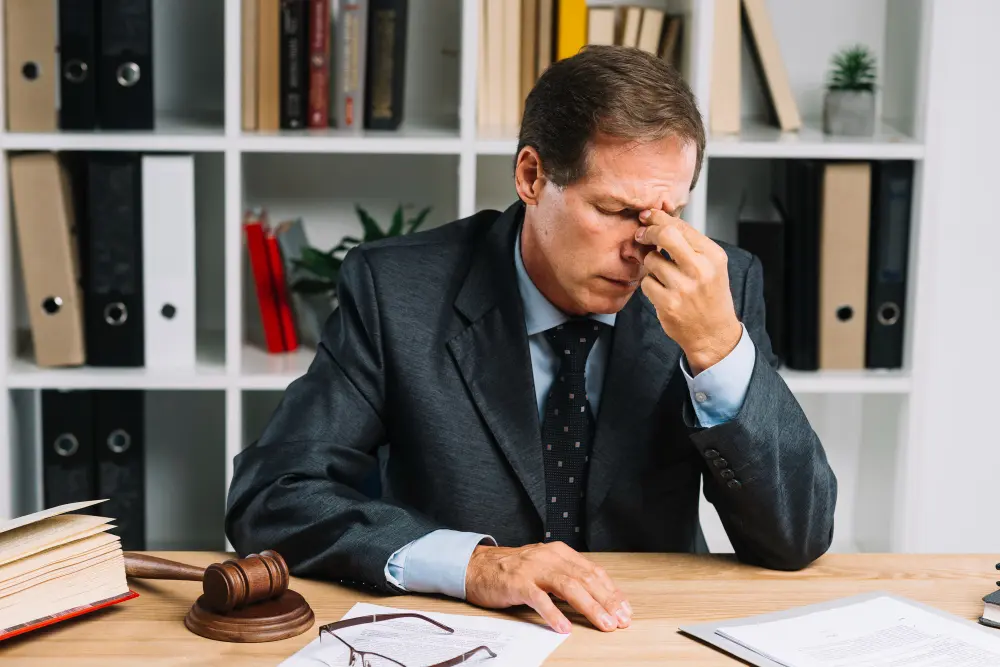Can I Fire My Personal Injury Lawyer?
Get a Free ConsultationYes, you can fire your personal injury lawyer. But, should you?
In Florida, you can choose to fire a lawyer from your personal injury case at any time. Here’s a guide on when you should consider firing your personal injury lawyer and how to fire your lawyer if you decide it’s the right choice.

When Should You Fire a Lawyer in a Florida Personal Injury Case?
If you lack confidence in your lawyer’s abilities and aren’t satisfied with how they’re handling your case, you may want to end the attorney/client relationship. Especially if your lawyer is failing to provide updates about your case or isn’t communicating effectively to keep you informed.
How Do I Fire My Lawyer After I’ve Already Paid?
A common problem is deciding you want to fire a personal injury attorney after you’ve already paid a retainer or other fees. The Florida bar encourages clients in this dilemma to arrange a face to face meeting with the attorney.
Voice your complaints and concerns in this meeting and try to reach a consensus. Your attorney may even choose to withdraw from the case voluntarily if they no longer feel confident they can win your case.
At Vanguard Attorneys, you don’t pay any fees unless we win your case. Call (813) 471-4444 for a free consultation and advice for your case.
3 Important Steps When You Fire A Personal Injury Lawyer
Always review your Statement of Client’s Rights or Written Agreement dictating any terms regarding how the attorney-client relationship must be terminated. Then move forward and note the following:
1. Cite the Cause for Termination
In order to protect your interests and avoid liability for additional fees, you must determine and cite acceptable cause. Incompetence or conflicts of interest can be cited as causes. For example, if you feel certain that your lawyer simply lacks proper experience following a face-to-face meeting; cite a “lack of case experience” as your cause for termination. Failure to cite a cause or claiming that you don’t like your lawyer’s personality are not suitable reasons and may leave you liable for fees.
2. Communicate in Writing and Keep Written Documentation
Notify your lawyer of your decision in writing. Have the letter delivered via certified mail and clearly state your cause behind terminating the relationship. A written notice should be clear and direct in order to eliminate any doubt about your intentions. Attempt to keep communication objective and professional and abstain from emotionally charged remarks.
3. Request a Copy of Your Client File and Invoices
Request that the attorney provide a complete copy of your case file. The attorney has the right to charge reasonable copy and postage fees. Any original copies of materials and documents that you’ve provided to the lawyer belong to you and should be returned without charge. Also request an itemized invoice of all fees, including amounts you’ve already been charged and any balances the lawyer claims you still owe.
Seek New Representation in Your Personal Injury Case
After taking these steps, hire a new personal injury lawyer as soon as possible. Tell your new lawyer the reasons you dismissed your former counsel and explain why these factors are important to you so your new attorney knows your priorities and you can feel confident in your decision. Obtaining your case file and sending it to your new lawyer will help their team quickly begin working on your case.
In some cases, a defendant may see a change in counsel as a sign of a weak case. The defense may seek to rush the case to trial in order to prevent the new lawyer from having time for preparation and research. Make the transition quickly and so your new attorneys will have as much time as possible to research and build your case.
References:
The Florida Bar – Consumer Pamphlet: A Consumer Guide To Clients’ Rights
